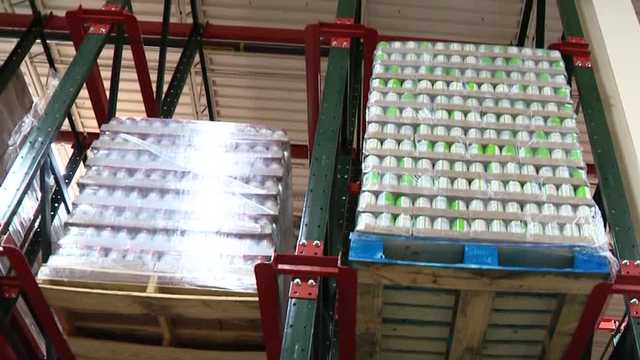‘We are ready’: Already facing challenges, the Maryland Food Bank prepared to meet an increased need

By Breana Ross
Click here for updates on this story
BALTIMORE (WBAL) — The Maryland Food Bank and its partners across the state are bracing for a potential increase in food insecurity as the government shutdown continues.
The groups are working to meet the need if the shutdown lasts for a prolonged period of time.
“At this point, what we’re doing is we’re making sure we’re having a lot of good communication with our partner network,” said Anne Wallerstedt, vice president of government relations and strategic initiatives at the Maryland Food Bank. “We have about 800 partners located all across the state. Making sure that they know that we are ready in case they have an increased need.”
The potential increased need comes as the Maryland Food Bank has already lost around $4.5 million in federal funding. At the same time, Maryland is already seeing a growing need.
“We know that Marylanders were already facing economic challenges. One in three Marylanders are at risk of food insecurity just this year,” Wallerstedt said.
Wallerstedt expects the number of people at risk of food insecurity to grow as the shutdown continues.
“Realistically, once paychecks start going away, when public benefits start to see sort of a rollback in any way, that’s really what we’re preparing for,” she said.
The National WIC Association anticipates that the Special Supplemental Nutrition Program for Women, Infants, and Children, has enough funding to remain open for about one or two weeks.
In a statement, the group said: “The timing of this shutdown at the start of the new fiscal year puts WIC at risk of rapidly running out of funds. This failure needlessly jeopardizes the health and nutrition of millions of pregnant women, new mothers, infants and young children who rely on WIC.”
A prolonged shutdown could also impact SNAP benefits.
The food bank is no stranger to filling in the gaps, having experienced the 35-day government shutdown that started in 2018 and carried into 2019, during which the food bank set up pop-up food pantries. They’re prepared to do that again if needed.
“If need be, we can do targeted food distribution events and really make sure the food is going into the right geographic areas in the state and for the right populations as well,” Wallerstedt said.
Please note: This content carries a strict local market embargo. If you share the same market as the contributor of this article, you may not use it on any platform.
Fenly FoxenFenly.Foxen@cnn.com7-9473